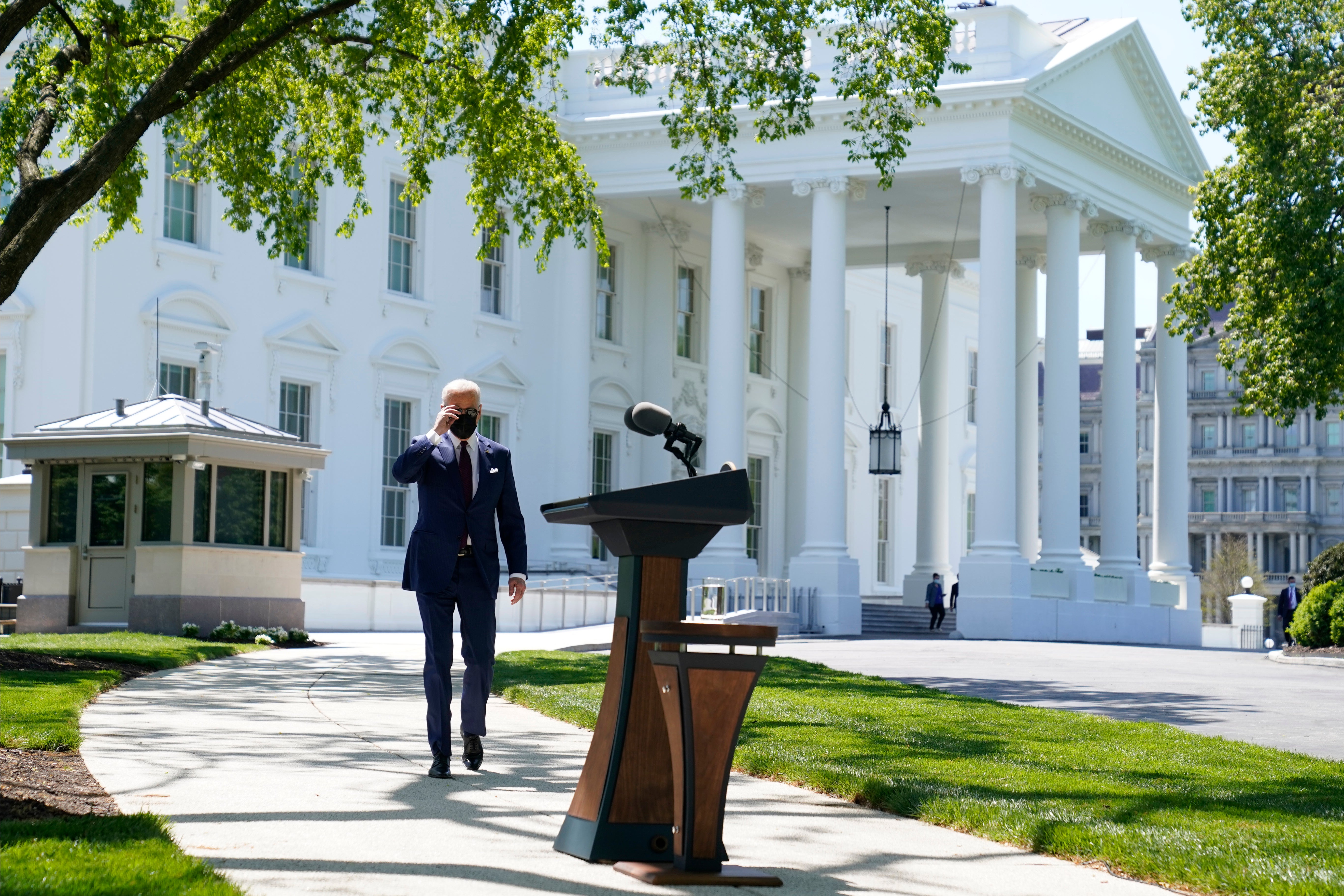How do Republican voters who backed Biden feel about the president now?
A significant proportion of Americans who usually cast their ballot for the GOP decided not to re-elect Trump in last year’s election. What they wanted was a moderate — but is that what they got?


After the first 100 days of the Joe Biden presidency and on the eve of his first address to Congress, it’s safe to say long-time Democratic voters are pleased with the president’s performance so far.
But what about the long-time Republican voters who chose to check their party ID at the door last November and vote for a Democrat? Biden, after all, presented himself as a moderate, willing to compromise with Congressional Republicans on legislation.
Senate Minority Leader Mitch McConnell certainly doesn’t see it that way. On Tuesday, he said Biden’s presidency so far “can best be described as the Biden bait-and-switch.” He added, “President Biden ran as a moderate, but I’m hard-pressed to think of anything at all that he’s done so far that would indicate some degree of moderation.”
It’s unsurprising McConnell would say that, given his goal is to reclaim the title of Majority Leader following the 2022 midterm elections. As for those everyday Americans who took a chance on Biden? It’s a mixed bag.
For those who wanted a return to some semblance of normalcy, Biden’s undoubtedly an improvement. It’s not a stretch to say the Trump presidency was nearly 1,500 days of constant chaos. The unpredictability of the 45th president’s Twitter feed, the school-yard fights with the press, the petty insults, conspiracy theories, and everyday absurdities that became customary for four years are gone. Biden, by contrast, is almost boring. His Twitter feed is a mundane collection of mini-press releases and official statements.
As for taxes and spending, it shouldn’t surprise anyone that Biden, the Democrat, would want to increase spending and raise taxes. That said, Biden’s ambitious goals dwarf anything Barack Obama proposed during his two terms. Biden already pushed through the American Rescue Plan, a “Covid relief” bill with a price tag of $1.9 trillion. His infrastructure plan (a.k.a the American Jobs Plan) comes at the cost of $2.2 trillion, and his American Family Plan would cost nearly another $2 trillion.
That’s $6 trillion in spending on top of a budget blueprint estimated at $6.1 trillion for the upcoming fiscal year. With a national debt that’s already a staggering $28 trillion, any Republican that expected Bill Clinton-type spending got a lesser version of Bernie Sanders instead. Naturally, the president says he will pay for his spending proposals with a series of tax increases that target the wealthy, which consistently polls well. However, it’s difficult to see how raising the top income tax rate from 37 percent to 39.6 percent and raising capital gains taxes on those making over $1 million a year to nearly 40 percent will bring in enough revenue to pay for Biden’s aggressive plans.
Executive orders have become a more popular tool in recent presidencies, and any Republican who voted for Biden thinking he might tap the brakes is likely disappointed. Biden not only signed 40 executive orders in his first 100 days, but he also revoked 39 others. By contrast, Barack Obama, in his first 100 days, signed 19 and withdrew nine. George Bush signed 11 and removed four.
Elsewhere, Biden has received criticism for his characterization of new voting laws in various states as a throwback to the Jim Crow era, describing Georgia’s new legislation in particular as “Jim Crow on steroids.” The Jim Crow era, of course, was marked not only by Black and white lunch counters, water fountains, and separate movie entrances, but voter suppression tactics such as poll taxes, literacy tests, and everything but guessing the number of jellybeans in a jar to vote. The motivation of Republican legislatures to pass new voting laws can certainly rest at the feet of Trump and his lies about the election. Still, Biden’s constant references to the painful period of Jim Crow do not help frame the debate in a way that is likely to heal rifts between Democrats and Republicans in the future.
They also led to Biden inserting himself into the culture wars. Major League Baseball’s All-Star game was scheduled for play at the home of the Atlanta Braves in Georgia. Following the passage of their new election law, Biden said he “strongly supported” MLB moving the game to another location. Twenty-four hours later, the league announced they were moving the game to another city. After watching Trump insert himself into the NFL debate about kneeling during the national anthem, it’s not hard to see how some would be upset Biden took that step.
Time will tell if the Republicans who voted for Biden will stick with him in 2024. Right now, those voters can best describe what they’ve gotten so far as “hazy.”
Jay Caruso is managing editor of the Washington Examiner

Join our commenting forum
Join thought-provoking conversations, follow other Independent readers and see their replies